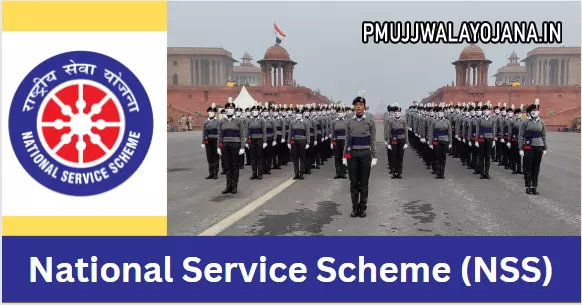If you are a student in India and want to volunteer while studying, the National Service Scheme (NSS) is a great program for you. Started by the Government of India, NSS encourages students to take part in social and community activities that build good qualities in them. It is open to all students who want to help society and care for the environment. Sometimes, volunteers may get a small payment as a thank you.

Understanding the National Service Scheme (NSS)
The National Service Scheme was started on September 24, 1969, by Dr. V.K. R.V. Rao, who was the education minister at that time. Its aim is to help students develop their personality by serving the community alongside their studies. The Ministry of Youth Affairs & Sports, Government of India, runs this program.
Under NSS, students commit to two years of service during their academic career. They must complete 120 hours of community work each year and take part in at least one special camp organized by NSS.
Quick Facts About NSS
| Name | National Service Scheme (NSS) |
| Started by | Government of India |
| Who can join | Students across India |
| Objective | Encouraging voluntary activities with some financial support |
| Official website | https://nss.gov.in/ |
Overview of NSS
NSS helps students learn to give fair support to society. Volunteers focus on improving the lives of homeless people and those affected by natural and man-made disasters by providing food, clothes, and medical help. Through this, students also learn how people live with few resources but keep their dignity. The main aim is to create a strong group of young people who can help solve social issues.
Main Benefits of Joining NSS
- Get to know your local community better.
- Work closely with the community to find solutions to their problems.
- Learn to feel responsible and active as a citizen.
- Use your knowledge in real-life situations to help others.
- Build skills like teamwork, leadership, and problem-solving.
- Take part in relief activities during natural calamities.
How NSS Works
NSS operates across India with the central government working together with state and university NSS cells. Every college has its NSS unit with 20 to 40 student volunteers. A teacher or staff member leads each unit and reports to the regional NSS coordinator. Volunteers do not wear a fixed uniform but wear badges to show their commitment.
NSS Stipend Details
- Volunteers receive Rs. 250 each per year for community work in villages and urban slums.
- For each 7-day Special Camping Programme (SCP), volunteers get Rs. 450 per head.
- The government funds NSS units at regional and state levels, including training institutions.
Activities Volunteers Do
- Cleaning local areas to keep them tidy.
- Planting trees and promoting tree growth.
- Organizing shows or rallies to spread awareness on education, health, and social issues.
- Holding health camps with medical experts.
Who Can Join NSS?
- Students who live in India permanently.
- Those enrolled in 11th, 12th grade, or +2 courses.
- Students from technical colleges, universities, and postgraduate courses.
How to Join the National Service Scheme
Joining NSS is simple. Just enroll in any university or college in India that offers NSS, and you can sign up to volunteer and be part of this rewarding program.
Common Questions About NSS
What is NSS’s motto? “NOT ME BUT YOU” meaning selfless service to others.
What is the main goal of NSS? To shape students’ character through volunteer work.
Why is the NSS badge navy blue? It represents the universe, showing NSS’s readiness to serve humanity as a small part of the world.
Being part of NSS not only helps society but also helps you grow as a person. If you want to make a difference and learn new skills, NSS can be a great way to start your journey.